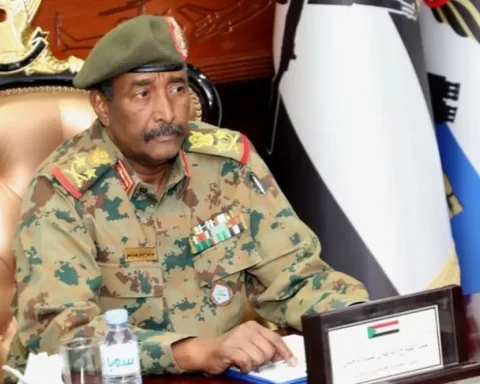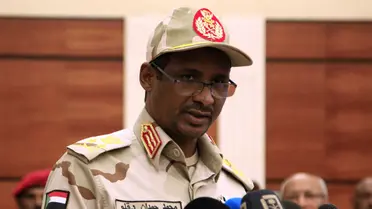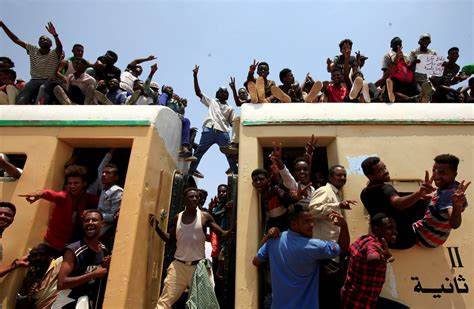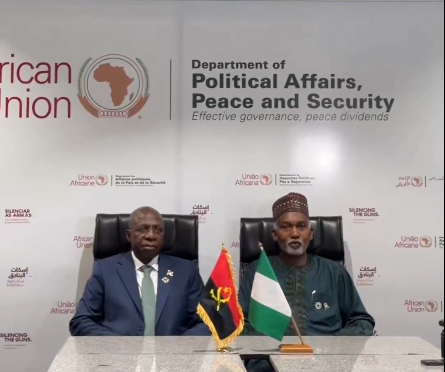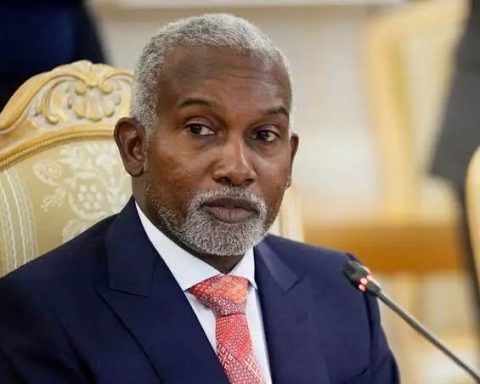The Sudanese Armed Forces (SAF) has escalated its diplomatic confrontation with regional actors, accusing Kenya of serving as a key transit route for weapons from the United Arab Emirates (UAE) to the Rapid Support Forces (RSF), as Sudan’s devastating civil war enters its third year.
Tensions spiked following a social media post on 16 June by Kenyan government official Isaac Mwaura, who stated that “Egypt and Iran back the Sudanese Armed Forces; the UAE backs RSF.” Sudan’s foreign ministry swiftly seized on the post, calling it public confirmation of long-held suspicions.
Join our WhatsApp ChannelIn a statement released on Tuesday, the government claimed that arms and ammunition labelled as Kenyan were recently discovered in RSF caches in Khartoum. The ministry alleged that Kenya has become a “main conduit” for Emirati military supplies to the RSF, further accusing Nairobi of violating international law and regional norms of non-interference.
The Sudanese government, backed by the army, has already banned imports from Kenya and condemned the country’s openness to hosting RSF leaders. The UAE has repeatedly denied supporting the RSF, but multiple reports from UN investigators and Western governments suggest a credible pattern of arms transfers through Emirati territory.
The government has renewed calls for Kenya to align itself with the United Nations Charter, the Constitutive Act of the African Union, and regional protocols, urging it to immediately cease all forms of support for what it describes as a “terrorist militia.”
READ ALSO: Idris Sworn In As Sudan’s Prime Minister Amid Devastating Civil War
While regional diplomatic tensions escalate, the humanitarian situation inside Sudan continues to deteriorate at an unprecedented scale. The United Nations now describes the crisis as the worst in the world.
More than 30 million people—two-thirds of Sudan’s population—are in need of humanitarian assistance. The country faces a historic hunger emergency, with the World Food Programme reporting that 24.6 million people are suffering from acute food insecurity. Famine conditions have been confirmed in parts of Darfur and the Nuba Mountains, and over half a million children are estimated to have died from malnutrition since the war began in April 2023.
Displacement has reached record levels. According to UN figures, approximately 8.6 million people are internally displaced, while 3.8 million have fled to neighbouring countries. In total, over 14 million Sudanese have been forced from their homes, making this the largest displacement crisis globally.
The conflict has also decimated the country’s health system. The World Health Organisation reports that between 70 and 80 percent of health facilities in conflict zones are non-operational. Disease outbreaks, including cholera and measles, are spreading rapidly in overcrowded camps and urban ruins, where clean water and sanitation are scarce.
READ ALSO: Sudan Conflict Is ‘World’s Fastest-growing Displacement crisis’, UN Official Warns
Sexual violence and other forms of gender-based abuse have surged. The United Nations estimates that more than 12 million people, particularly women and girls, are at risk of conflict-related sexual violence, while essential protection services remain severely underfunded.
Humanitarian organisations require $4.2 billion in 2025 to meet the urgent needs of 20.9 million of the most vulnerable Sudanese. However, as of March, less than seven percent of that amount had been received, severely limiting relief operations across the country.
As the war drags on, the SAF insists it is defending Sudan’s sovereignty, while the RSF continues to entrench itself militarily and politically. The international community remains divided, with diplomatic efforts stalling and regional rivalries further complicating peace prospects. Meanwhile, millions of Sudanese remain caught in one of the worst humanitarian catastrophes of the 21st century.



